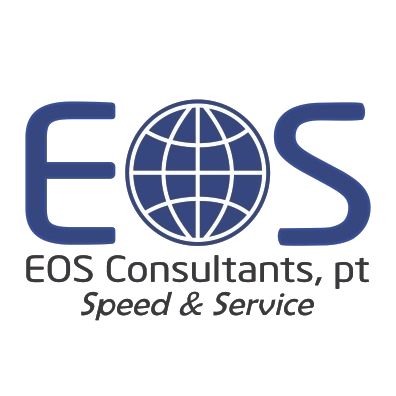March 28, 20221h7tj
Source >>>
by
February 01, 2022 Illustration by Kenzo HamazakiSummary. There is no unique path when it comes to sustainability. If you are curious about how to shift to a career in this area, there are a few ways to get started. First, know that this field is not going anywhere. Businesses are reacting to consumer demands by creating new…more
Illustration by Kenzo HamazakiSummary. There is no unique path when it comes to sustainability. If you are curious about how to shift to a career in this area, there are a few ways to get started. First, know that this field is not going anywhere. Businesses are reacting to consumer demands by creating new…more
Where your work meets your life. See more from Ascend here.
What jobs contribute most to the health of our planet? A few obvious answers may come to mind: ecologist, biochemist, meteorologist, geologist — any role in the environmental sector. While these careers are highly admirable, not every person who cares about creating a more sustainable world wants to become a scientist, and for many of us, this field is far away from what we have already studied or prepared to pursue.
The good news is that the future of work offers plenty of diverse opportunities for workers hoping to make an impact. There’s no unique career path when it comes to sustainability. You don’t need to drop what you are doing, or push aside your other passions, to build a green career.
If you are curious about how to begin, or shift to a career in this area, there are a few ways to get started.
Educate yourself on the three pillars of sustainability.
The United Nation’s definition of sustainability is “meeting the needs of the present without compromising the ability of future generations to meet their own needs.” It has three pillars: environmental, social, and economic.
The environmental pillar is familiar to most of us and largely involves initiatives aimed at helping companies reduce their carbon footprint. The social pillar focuses on an organization’s people, both internally and the external community they impact. The economic pillar works to ensure that companies are making profits through sustainable means and have ethical corporate governance, or management practices that align with the interests of their shareholders, customers, employees, and other communities.
Many international and domestic companies are rated and given an ESG (environmental, social, governance) score by third party providers that measure their performance around each pillars. According to McKinsey, there have been more than 2,000 academic studies, and roughly 70% of them find a positive relationship between ESG scores and financial returns.
Further, in 2015, the UN established 17 Sustainable Development Goals as part of their 2030 Agenda for Sustainable Development. We are in 2022, and businesses need to do more if we wish to meet these goals in the next few years.
What does this mean for you?
Sustainability is a broad, relatively new field — and it is not going anywhere. In fact, it is expanding. As society becomes more educated, consumer demands are changing. More people are asking for sustainable products and packaging, making a conscious effort to choose green brands.
Businesses are reacting by creating new roles focused on developing ESG-friendly practices and solutions in every function. Because these roles are new to everyone, the playing field is even. Both junior and senior employees can land them.
Pro tip: A great source of inspiration is the TED stream on sustainability. You can also read the latest reports on sustainability from consulting firms, like McKinsey, PwC, or Accenture or take a look at the 17 Sustainability Goals from the United Nations, referenced earlier.
As you research, pay attention to which concepts or goals resonate with you. Ask yourself: “What jobs are contributing to this cause? Which organizations are involved? What role could I play?”
Identify your area of expertise.
Now that you know what sustainability is all about, it’s time to think about how you can contribute through your passion, education, or area of expertise. No matter what sector you work in, odds are, there is a career path in this area that you can pursue.
Do you have a background in the fashion industry? Look into businesses focused on producing sustainable clothing. Have you studied law? Climate action and sustainability regulations are on the rise, meaning corporations need to upskill their legal teams around corporate governance practices. Interested in tech? There are companies building innovative tools to help businesses be more efficient and environmentally friendly, including cloud computing deployment and sustainability solutions architect roles.
If you’re curious about what positions are currently available in your industry, search “sustainability,” or “ESG,” under the “jobs” tab on LinkedIn. You may be surprised by the variety of roles presented.
Pro tip: Because the sustainability sector is so broad, you may find it challenging to find your niche. Networking is a great way to get inspired and discover new areas of interest. There are multiple professional networks on sustainability. Some are global. Some focus on young professionals. Some are designed specifically for marginalized communities or women. Look into these groups, follow their members, and then decide where you want to be.Sign up forAscendA weekly newsletter to help young professionals find their place in the working world and realize their personal and career goals.Sign Up
Upskill.
Once you get clear on what kind of jobs best suit you, it will become easier to figure out exactly which skills you need to build. As with all jobs of the future, soft skills such as creativity, adaptability and design thinking are critical. When it comes to sustainability, however, a new category has also emerged: green skills.
According to the United Nations Industrial Development Organization, green skills are the abilities and the knowledge needed to develop and support a sustainable and resource-efficient society. The Green General Skill index identifies four main types of skills that are sought after in green occupations:
- Engineering and technical skills: For candidates interested in technology, these skills are needed to develop new products and solutions, with a focus on renewable energy. For example, you may know that many companies use Cloud technology to store and consume data. There is a growing demand for people who have the technical expertise to evaluate the design, architecture, and implementation of that data to reduce energy consumption and improve efficiency.
- Science-based skills: For those interested in fields like physics and biology, this expertise is vital in the utilities sector, a part of which focuses on helping infrastructures transition to sustainable sources of energy.
- Operational management skills: In any field, this skill can be used to help organizations support green initiatives or activities. For example, sustainability specialists need to have an overall understanding of how a firm operates (from creating services and products to delivering them) and need to have the communication skills to collaborate with external stakeholders (both partners and customers).
- Monitoring skills: As more and more businesses are required to report ESG scores, new jobs will continue to arise in environmental compliance, including inspectors responsible for tracking, assessing, and understanding the technical criteria and legal standards companies must comply with.
Pro tip: Many of these skills are complementary to other areas of expertise, and can be developed through online trainings that offer completion certificates. You can research specific trainings around sustainability in tech, law, or even supply chain management. Completing them will help you stand out to recruiters.
Apply to the right companies.
When applying for roles, reach out to companies that have clear sustainability goals. Some companies may include their sustainability strategy directly on their websites, or as a part of their mission statement. For others, this may be less obvious, but there are a few questions you can ask during an interview to gauge their level of commitment:
- Where does the sustainability team sit within the organization?
- Is it a small, independent team or are sustainable business practices important across departments?
- If the company doesn’t have a team, what ESG-related goals are they pursuing?
Don’t be shy about digging deeper. At the end of the day, it’s worth taking the time to find an organization whose values align with your own.
Pro tip: One way to become more visible to potential employers and attract the right recruiters (especially on professional site like LinkedIn) is to develop a “green brand” on social media. Create content about your area of expertise regularly — tweet an interesting article, post commentary about a relevant initiative or event, or produce original content on visual sites like Instagram or TikTok. Use your brand to exemplify your dedication to sustainability when applying for jobs.
Finally, be proud of yourself and your commitment to helping the planet. We need more people to engage in sustainability careers — and it is a path that will continue to grow over the next few years. With a little effort, you can find a job that fulfills your goals.
Readers Also Viewed These Items
- Financial Accounting: A Self-Paced Learning ProgramToolBuy Now
- Quantitative Methods: A Self-Paced Learning ProgramToolBuy Now
Read more on Career planning or related topics Job search, Careers, Sustainable business practices and Corporate social responsibility
- NONahia Orduña is an engineer holding a MBA and a technical leader at Amazon Web Services. She is the author of Your Digital Reinvention. Learn more about the Future of Work and find free tools to thrive in the digital world at https://nahiaorduna.com.

